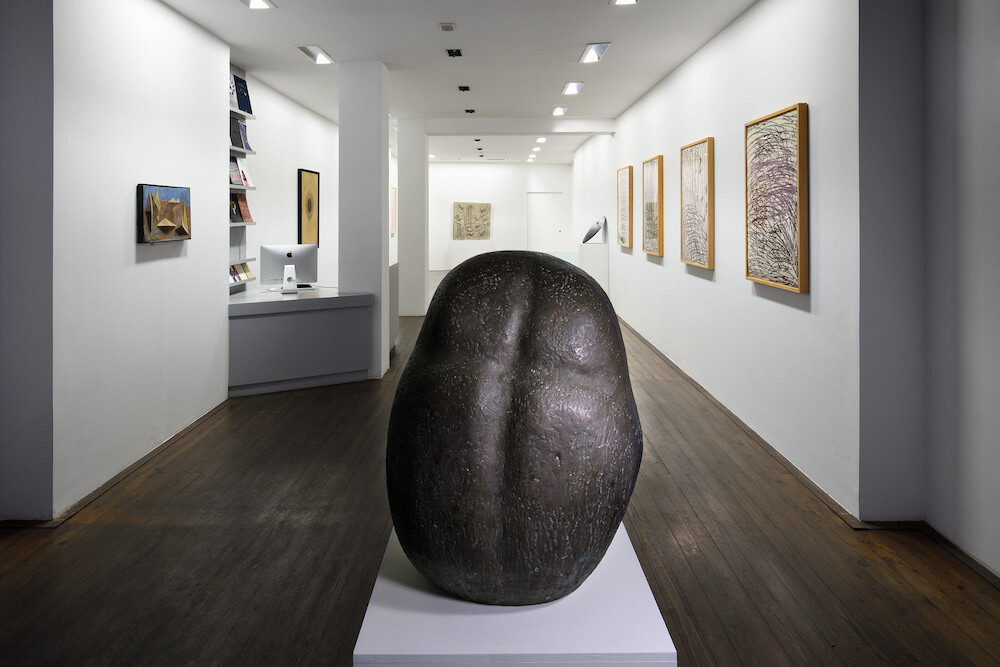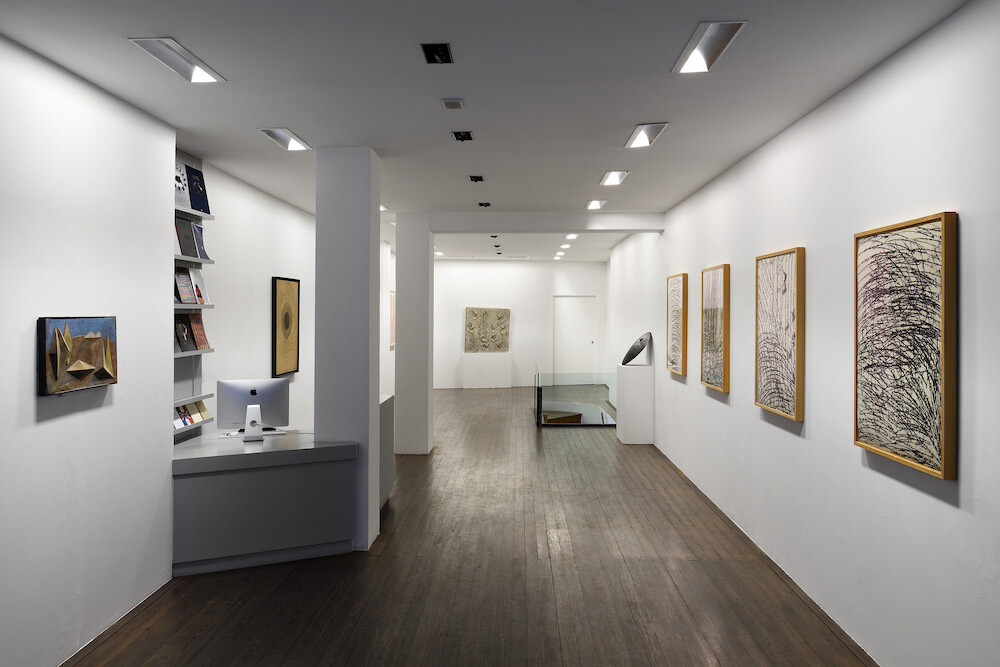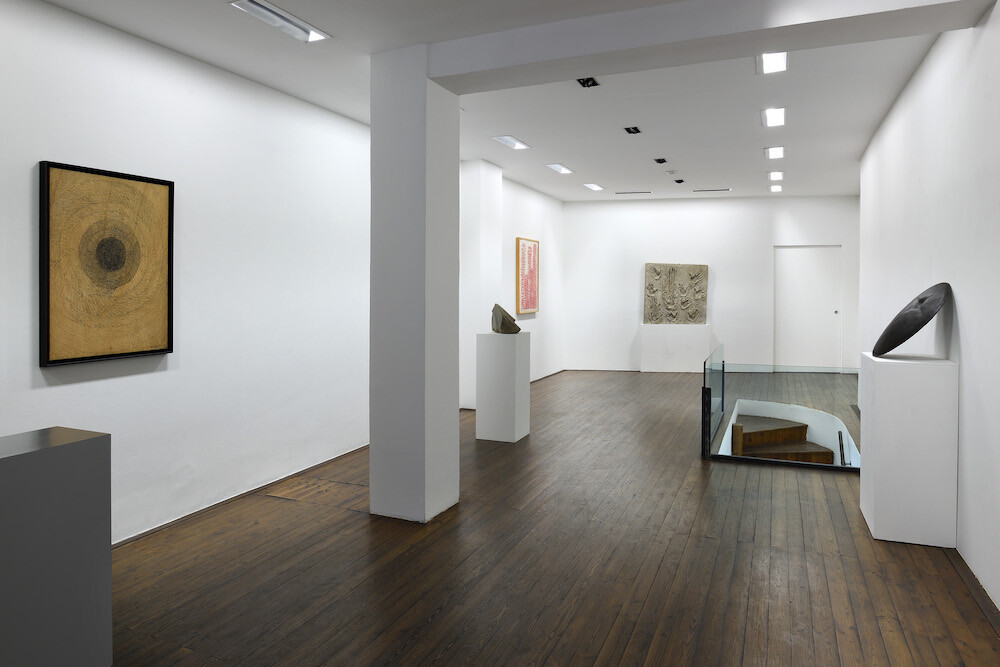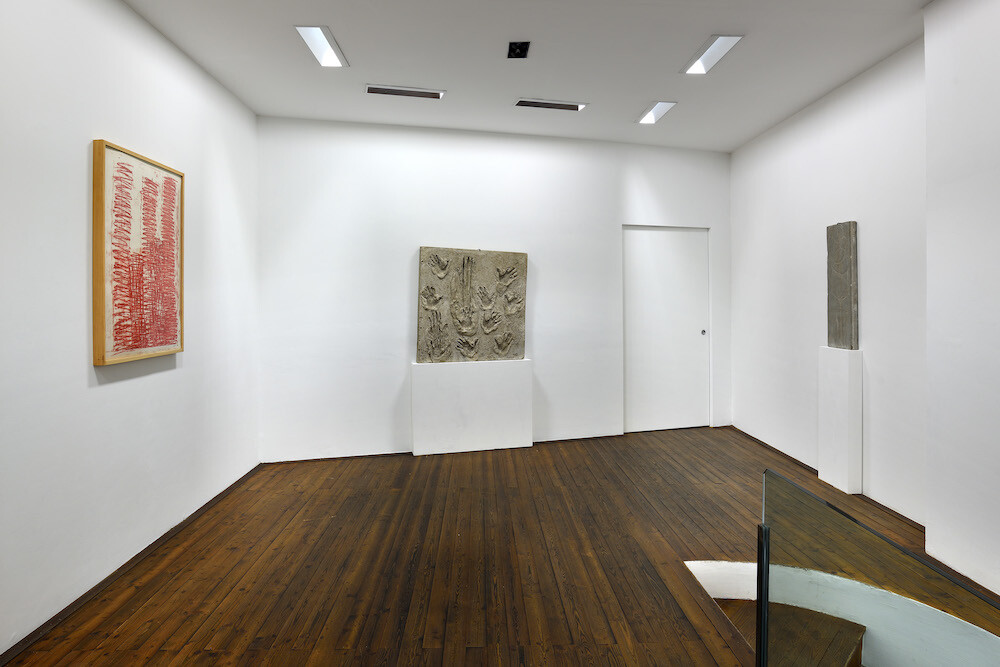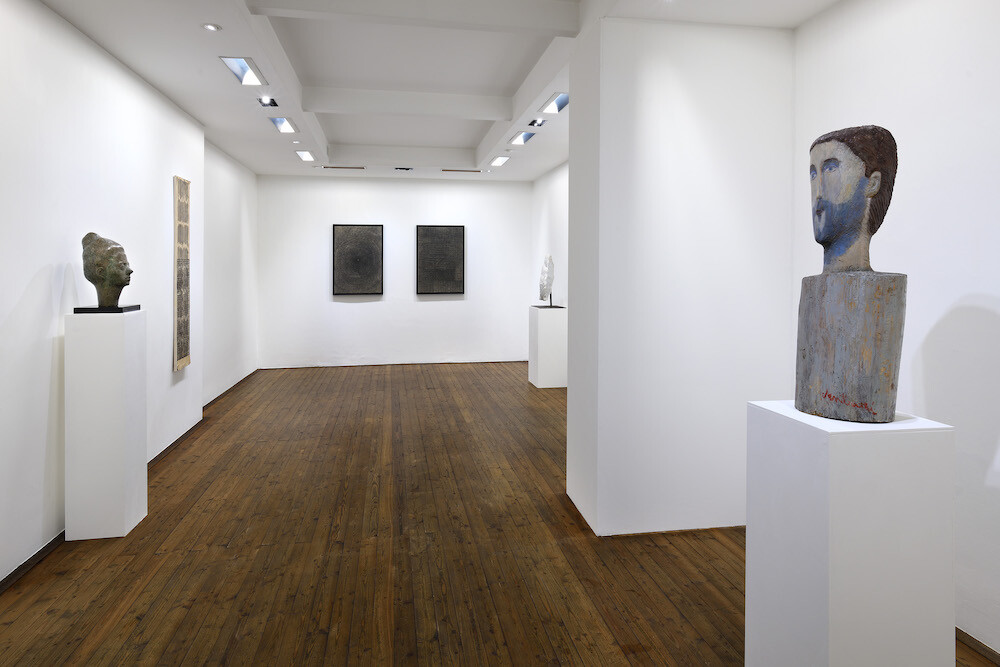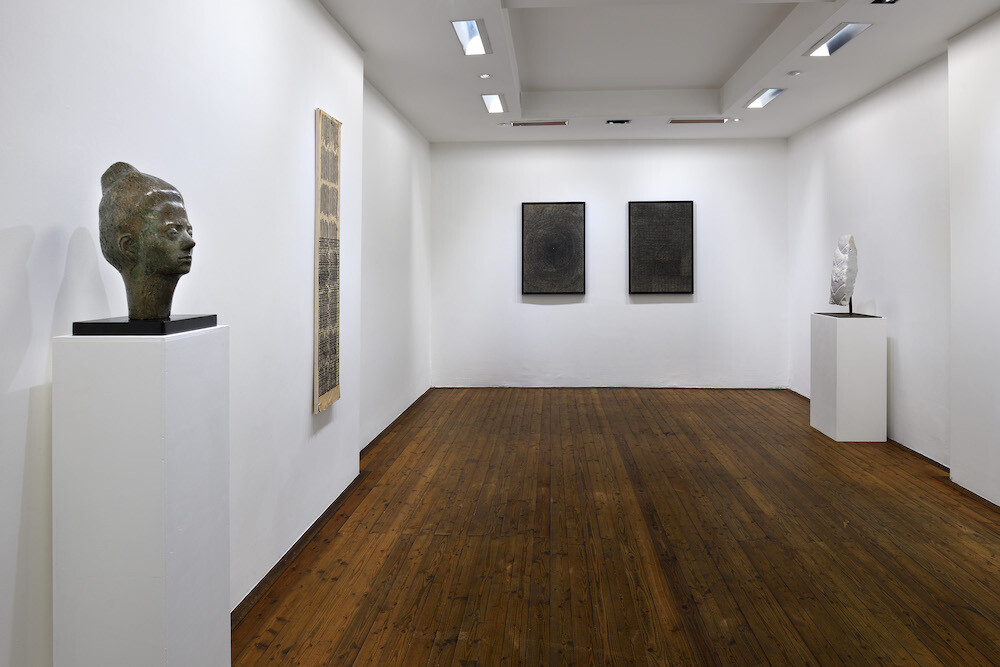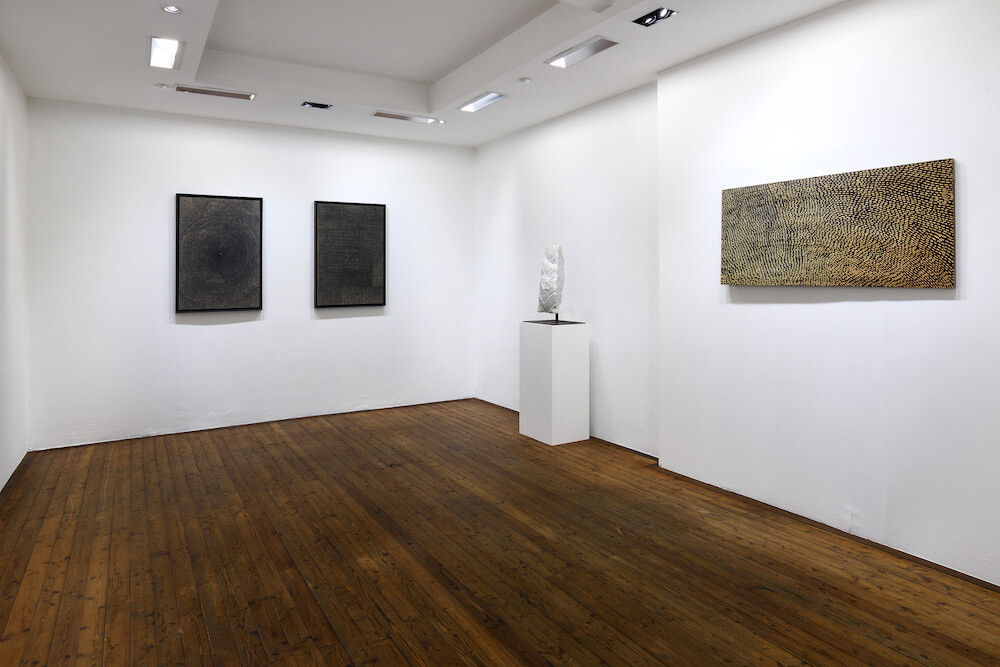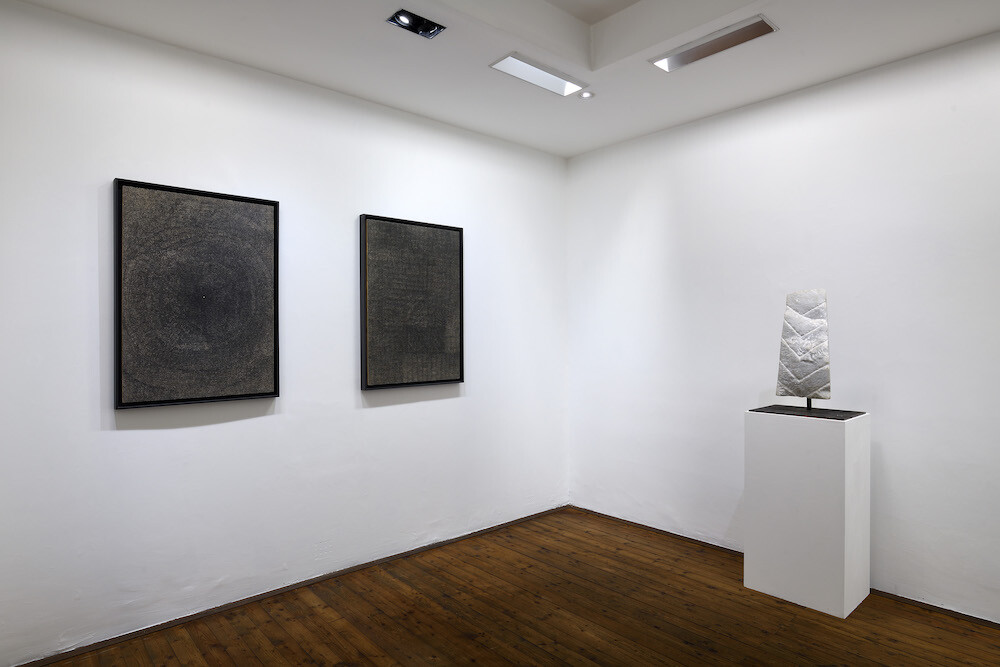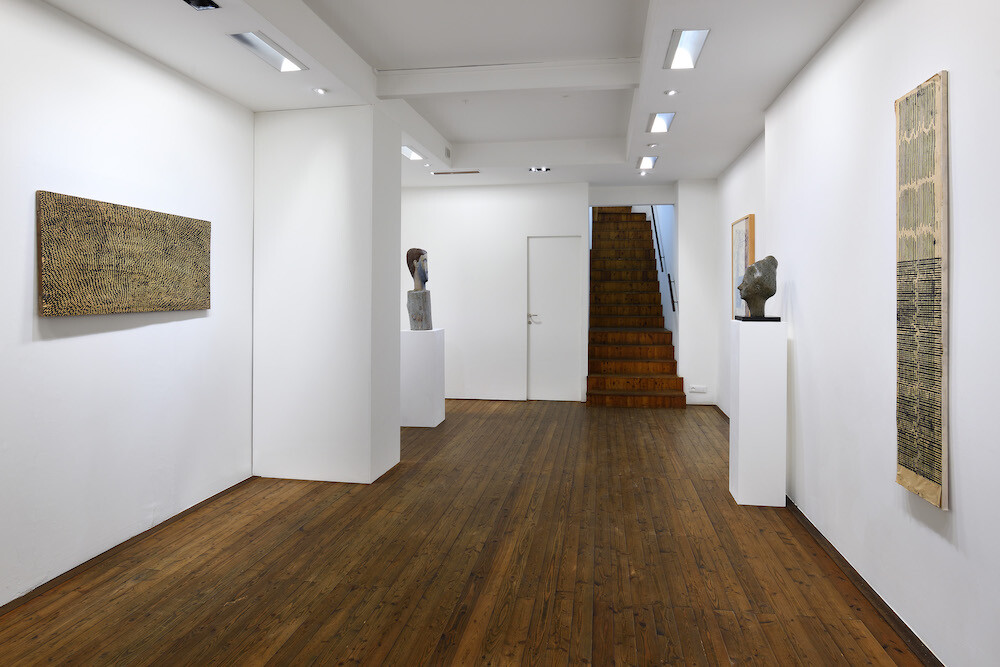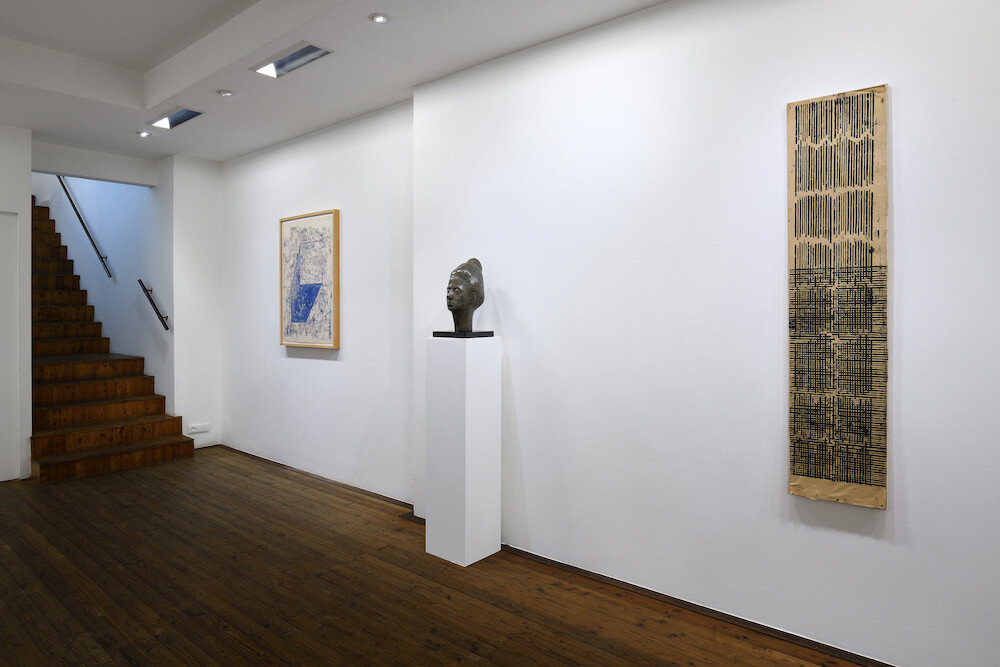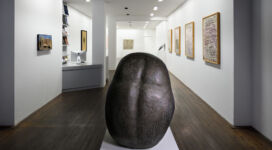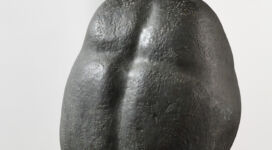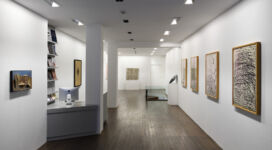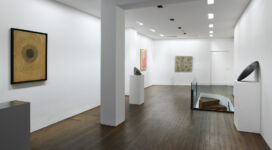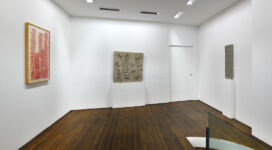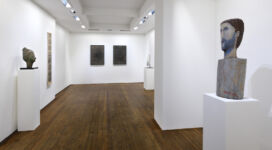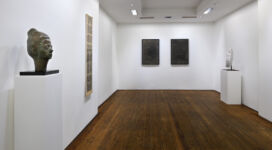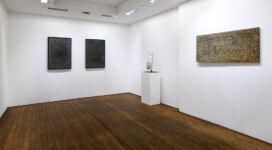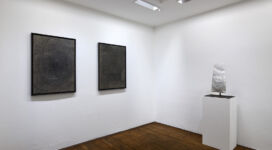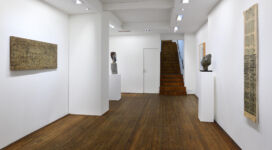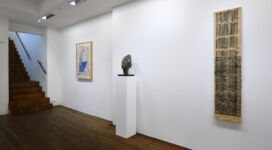| VENTURINO VENTURI | Biography | |
| materie 1941 – 1981 | browse the Magazine | |
| curated by LUCIA FIASCHI | ||
| 28 january – 17 march 2023 |
With this exhibition, Galleria Il Ponte renews the relationship with Venturino Venturi begun by my father Vincenzo when the gallery was based in San Giovanni Valdarno. The gallery exhibited Venturi’s works on several occasions from 1966 to 1974 and worked with him on a series of over thirty graphic works, from etchings to burins, in 1972.
This exhibition strives to retrace 40 years of experimentation on countless materials [materie] through a small number of salient works made by the artist from 1941 to 1981. Through these materials, Venturino found his own independent, solitary path which nevertheless touched on numerous artistic currents of the time.
In Ritratto della madre (1941), as well as numerous other portraits made between the 1940s and 50s, the concrete material is moulded and smoothed, losing its coarseness which instead reappears in works in pietra serena such as Minatore (1949), bronze Ventre (1954) or concrete Le Mani (1976), their rough surfaces and structural compactness broaching the space with great intensity.
This strength that emerges in his sculpture is vibrantly embodied in his endless works on paper. Here, he starts from the idea of a monotype to spread the oil material over the panel or concrete. He then lays the paper on this and works on it from the back. The colour black, red and sometimes blue, transferred through the pressure of the tool or with his hands, is sharpened by the coarse marks of the sculptor, who carves the paper as if it were stone. The result is a thick, pictorial material which reveals a dimension of great depth. This same depth and luminescence also unexpectedly appear in a set of works made of Indian ink directly on unprepared panels.
